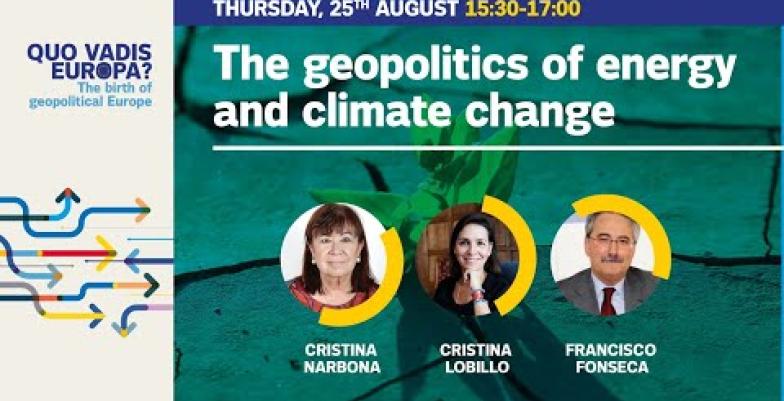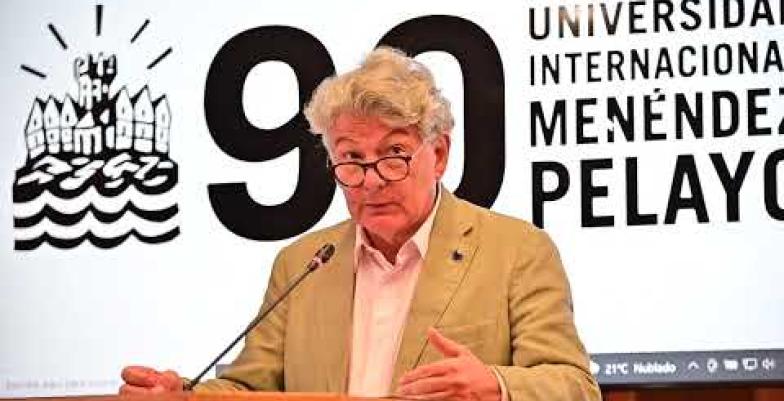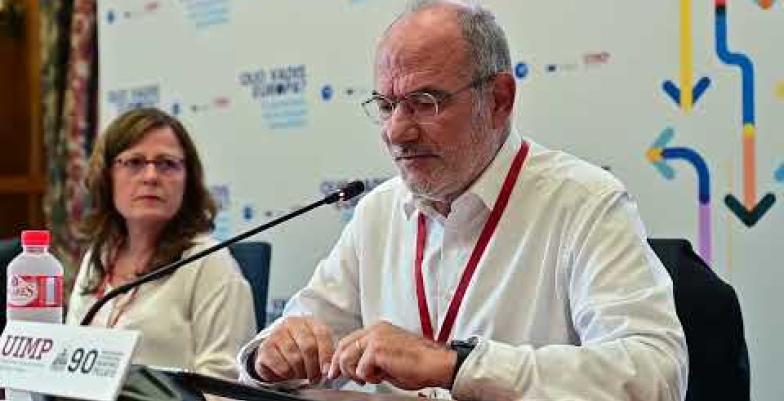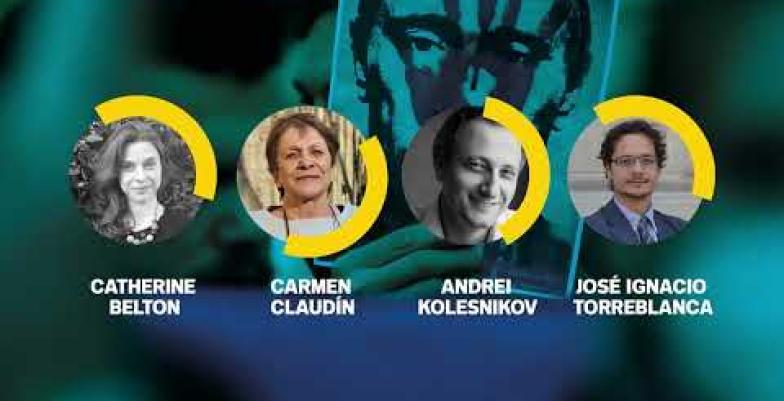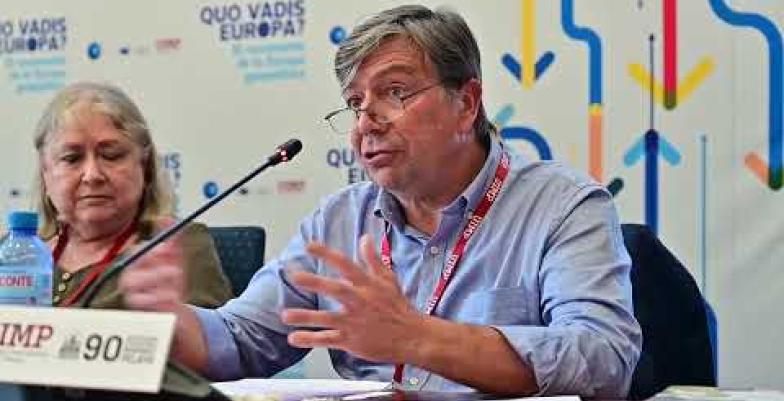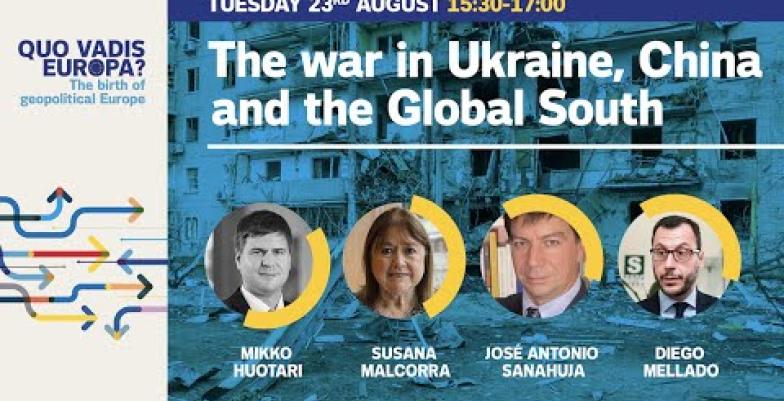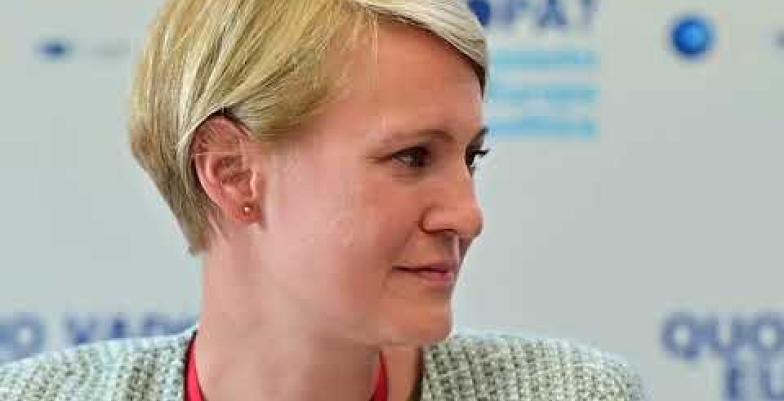
Quo vadis Europa? The birth of geopolitical Europe
-
Remote video URL
OVERVIEW
The question “Quo Vadis Europe?” is more pertinent than ever in this year 2022 when the international community, and in particular Europe, is incredulously witnessing the return of war to our continent. If the European Union is a political actor in constant flux, the war of aggression in Ukraine forces us to redefine ourselves as a global actor in the world order: what impact will this war and the instability it generates have on Europe’s political, economic, and social stability?
This course aims to reflect on all this in a multidisciplinary discussion focusing on the birth of geopolitical Europe; and on an analysis of the mistakes/omissions made and the scenarios to be designed. Over five days and in a total of eight sessions, the following topics will be analysed, among others: the reaction of the EU and its states to the war; how to move from reactive support measures for Ukraine to the consolidation of a proactive EU policy in the field of defence; the sources of Putin and Russia’s conduct and the possible future scenarios; the role of other global actors such as China and the Global South the joint use of military; the narrative dimension and the establishment of an EU narrative: how to fight disinformation?; the struggle for technological hegemony; the geopolitics of energy and climate change; and the impact of the war in future of Europe’s integration.
This course at the UIMP is an ideal framework for reflecting from different fields and sensibilities on future scenarios to which we cannot afford a technical and short-sighted response.
The birth of Geopolitical Europe
KEYNOTE:
• Josep Borrell, High Representative for Foreign Affairs and Vice-president of the
European Commission
ROUNDTABLE:
• Conversation between Josep Borrell and Sylvie Kauffmann (Editorial Director, Le
Monde)
-
Remote video URL
Key Messages

#QuoVadisEuropa – Guy Verhofstadt (EN)
“Our founding fathers had already in mind to create a federal Europe and a European Defense Community, at the very heart of NATO. The “end of History” is not here anymore: we have entered a new world of Empires that compete with each other. The key question is what is our place in this new order.” Guy Verhofstadt

#QuoVadisEuropa – Giorgio Anselmi (EN)
“The conflict at the world level is between nationalism and federalism. Instead of forming nations that always look back on history with a dangerous nostalgia, we Europeans have chosen to look forward, towards a greatness that none of our nations had ever known.” Giorgio Anselmi
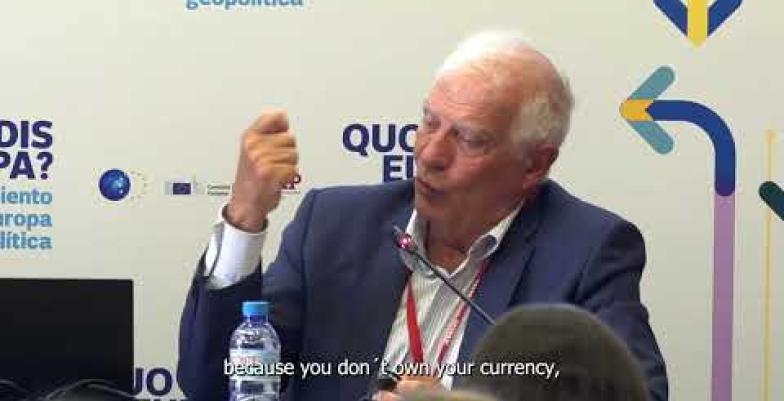
#QuoVadisEuropa – Josep Borrell (EN - 7/7)
“What does sovereignty mean today? The less formal sovereignty you have, the more real sovereignty you can aspire to, because giving up sovereignty to the EU allows you to increase your capacity to act and make decisions that you would not otherwise be able to adopt.” Josep Borrell

#QuoVadisEuropa – Josep Borrell (EN - 6/7)
“Our union is very poorly adapted to the use of force because the EU was born precisely to avoid wars and not enter into military conflicts. We wanted to abolish war, but now we are in a world of empires which want to recover the glory of their own past” Josep Borrell
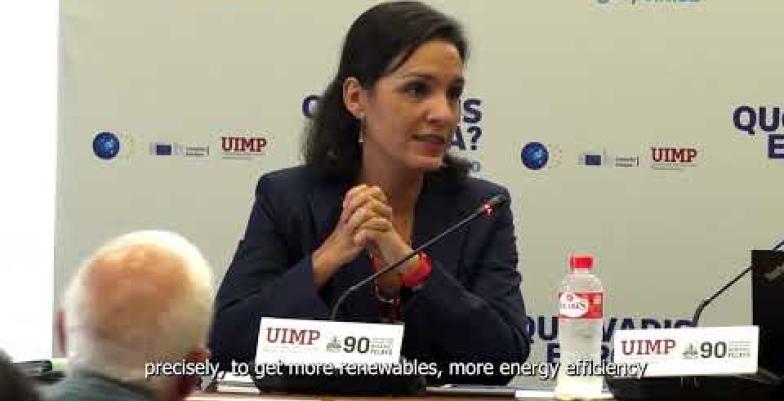



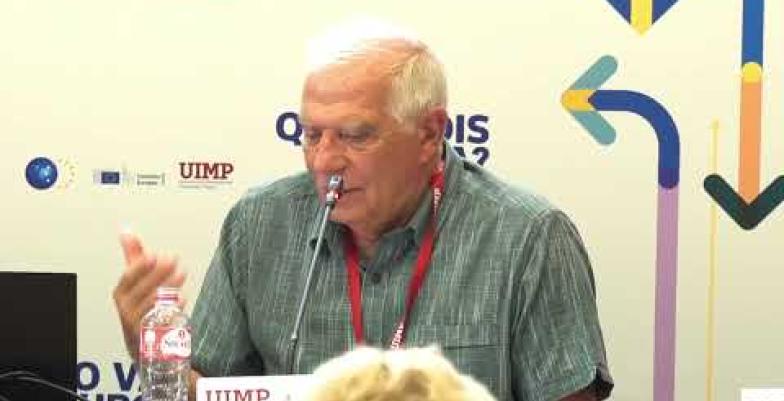

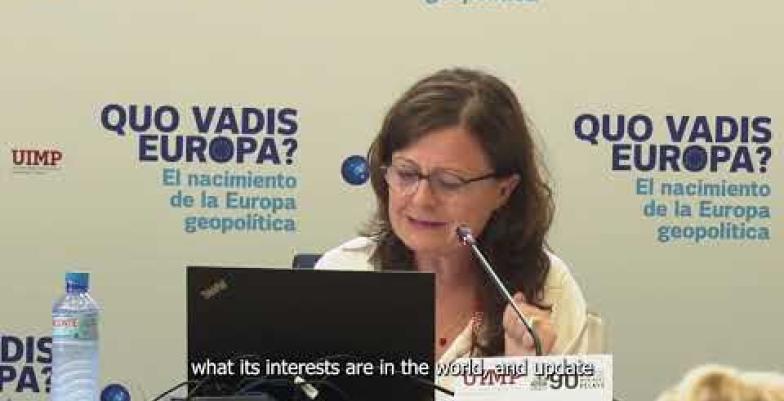
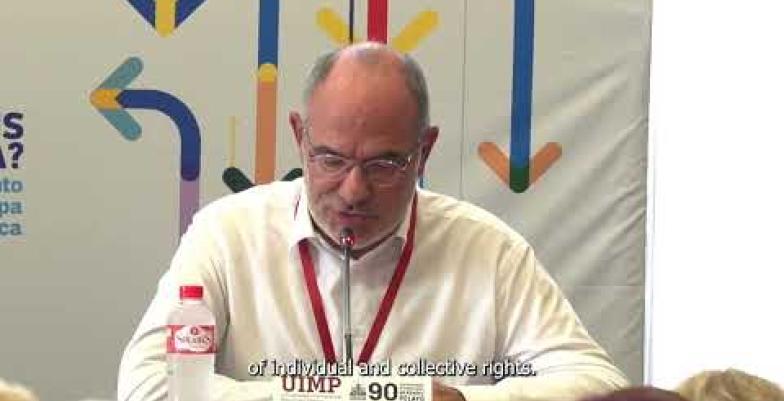
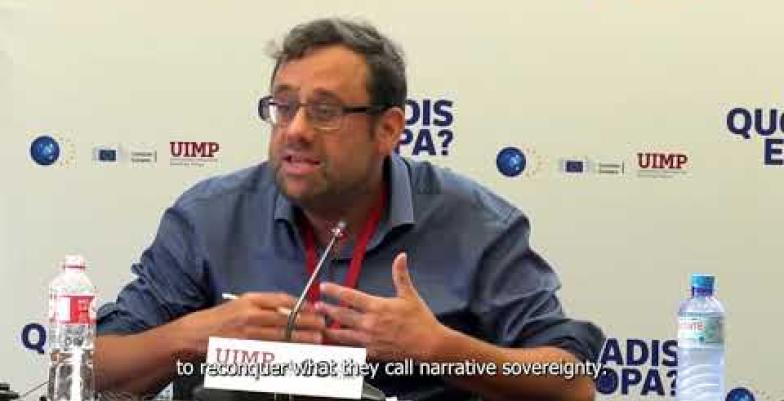
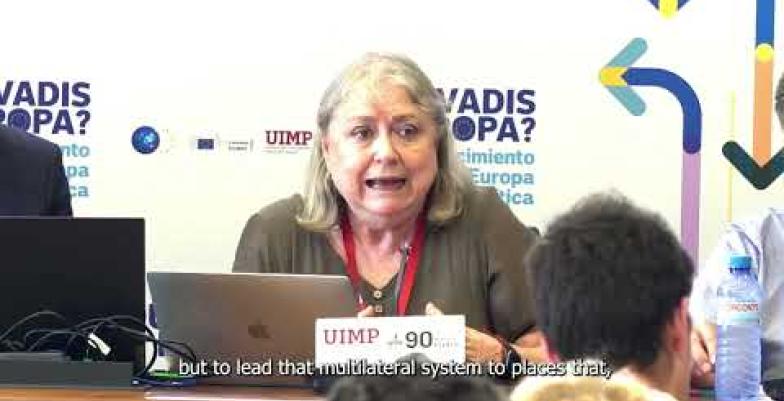
#QuoVadisEuropa - Susana Malcorra (EN)
“An intense association between Europe and Latin America can contribute to strengthening the multilateral system and redirecting it towards the fundamental principles that both parties, in general terms, share” Susana Malcorra

#QuoVadisEuropa - Mikko Houtari (EN)
“For China, foreign policy derives from the adversarial relationship with the United States, and we Europeans are seen by them as instruments in a broader power struggle” Mikko Houtari
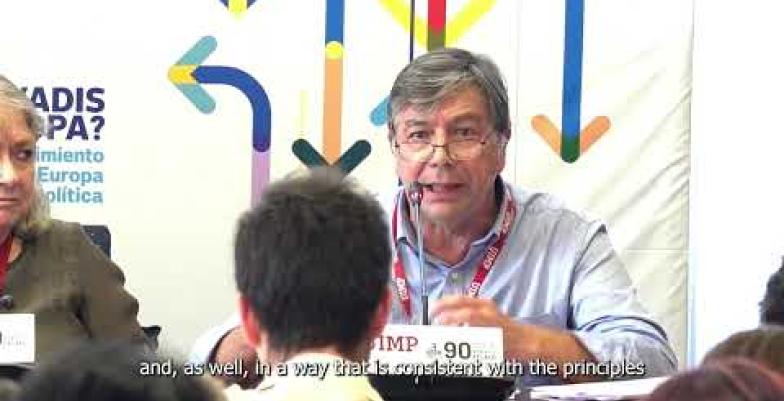
#QuoVadisEuropa - Jose Antonio Sanahuja (EN)
“Latin America has not always been a rule-taker in the international system: the region is the founder of several of the principles that are now enshrined in the United Nations charter. The very principles that the Russian invasion of Ukraine has called into question.” Jose Antonio Sanahuja

#QuoVadisEuropa - Catherine Belton (EN)
“When the Soviets realized that they could not compete economically or militarily against the West, they began covert tactics to disrupt and create dissension among their enemies. Now Putin is using those tactics.” Catherine Belton

#QuoVadisEuropa - Carmen Claudin (EN)
“The Russian system does not use propaganda as an instrument: it lives within propaganda. It does not need reality: it exists by itself” Carmen Claudin
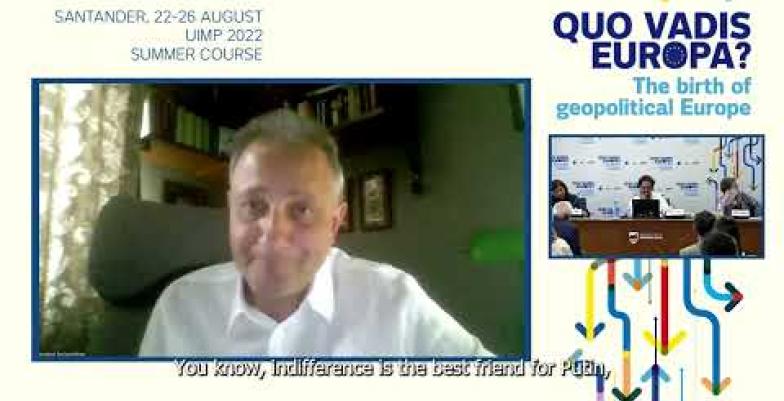
#QuoVadisEuropa - Andrei Kolesnikov (EN)
“Indifference is Putin's best friend, just like ignorance. People do not want to know the truth about the special operation: they block the information because they do not want to be on the side of evil” Andrei Kolesnikov
Photos

Recorded Sessions
-
Image

Click on the arrow to explore.
-
Image

Click on the arrows to explore.
-
Image

Click on the arrows to explore.
-
Image

Click on the arrows to explore.
-
Image

Click on the arrows to explore.
-
Image

Click on the arrows to explore.
-
Image

Click on the arrows to explore.
-
Image

Click on the arrows to explore.











